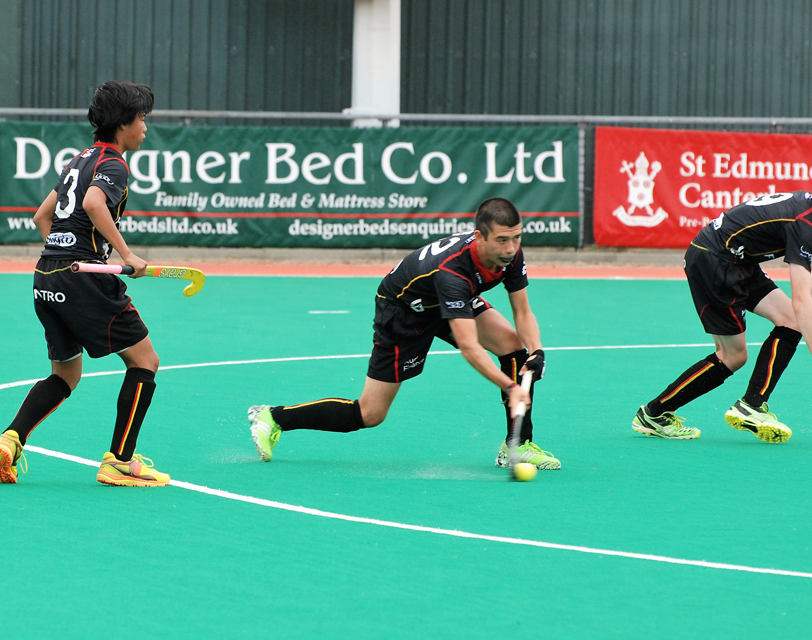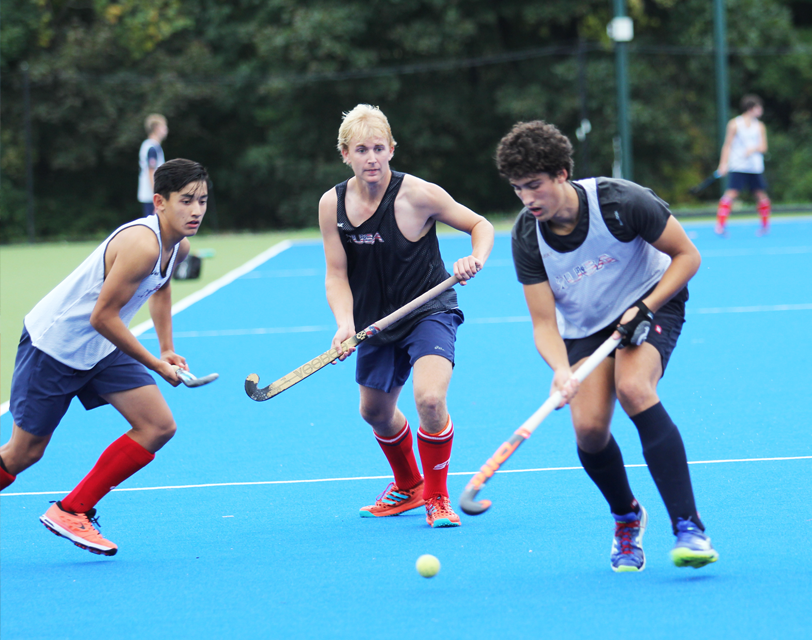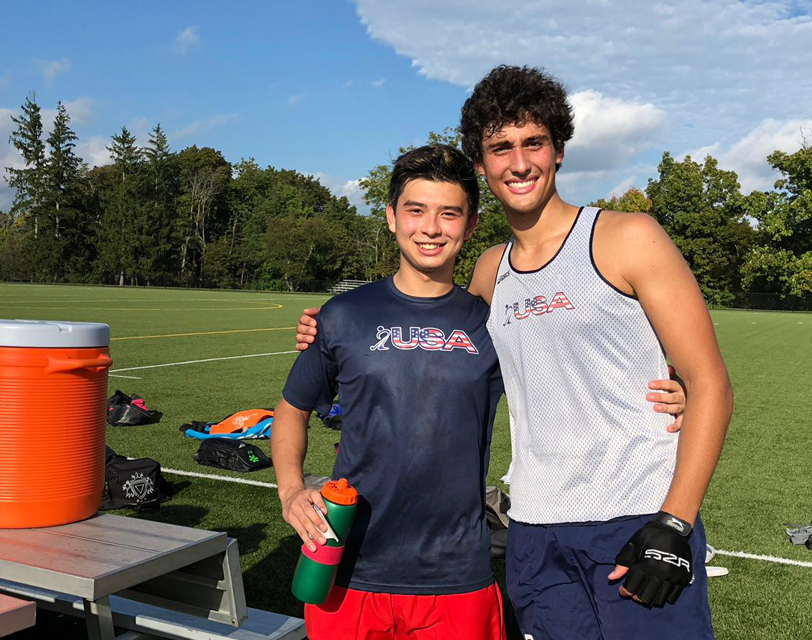Stars and stripes and field hockey sticks
First-year Eric Velge plays on the U.S. men’s national field hockey team, and with a chance at the Olympics on the horizon, he hopes to bring attention to this underappreciated sport.
Many people in the United States love sports, but that love isn’t equally divided. Some sports tend to be overshadowed, including one that has a history stretching from ancient Greece to the modern day Olympics. Eric Velge, a first-year at Carnegie Mellon, hopes to draw attention to this underappreciated sport: men’s field hockey.
Velge is from Brussels, Belgium, a country that boasts the third best men’s national field hockey team internationally. He started playing field hockey when he was five, and in the years before college, he spent about 20 hours a week on the sport. He was both a player and a coach, splitting his time between practicing with his team and mentoring young players.
Now at Carnegie Mellon University, Velge is majoring in materials science and engineering and hopes to get an additional major in biomedical engineering. At first, he wasn’t sure if he would continue playing field hockey, but he began to miss it. Luckily, an opportunity came knocking in the form of a phone call from Rutger Wiese, coach of the U.S. men’s national field hockey team.
Velge went to tryouts and made the U.S. team. As a college student, he is one of the youngest players, but Velge says he has a good relationship with the other players despite the age difference.
“The team works like a family,” he says. “You scream at each other, but at the same time, you all stick together.”
The friendly relationship isn’t limited to the players, either.
“I have a very good relationship with the coach,” Velge says. “We text each other all the time.
At Carnegie Mellon, Velge regularly exercises to stay in good physical condition.
“If we don’t stay fit,” Velge says, “then we will not pass our fitness test, which we have every two or three months.”
Since he is not an athlete for a CMU team, he does not have access to student athlete trainers or athletic department resources, but he says he manages fine with the gym in the Cohon University Center.
When I tell people I play for the U.S. national team, they’re stunned.
Eric Velge, first-year student in Materials Science and Engineering, Carnegie Mellon University
In addition to working out, Velge flies to New York or L.A. for monthly practices to prepare for his games. He also travels for practice games every break, with destinations ranging from Chile to South Africa. Real games are less common, but are becoming increasingly more important.
“We have the World Series in India,” he says, “And then we have the Pan American Games. If we win the Pan American Games, then we qualify for the Olympics next year.”
Velge says that a chance to go to the Olympics would be incredible, but winning the Pan American Games would be difficult. To claim a victory, they would have to defeat Argentina, the best men’s field hockey team in the Western Hemisphere and second best in the world. However, there are other ways of getting into the Olympics, such as performing well in tournaments and bringing their ranking up. When it comes to their chances, Velge is cautiously optimistic: “Hopefully, I’m thinking above 50%.”
Even as he eyes the Olympics, Velge finds that many of his peers are dubious about his chosen sport.
“When I talk to people, they’re a little bit skeptical about it because they don't really know what field hockey is,” he says.
Nevertheless, they still admire his skill level.
“When I tell them I play for the U.S. national team, they're stunned,” he says.
In addition to his field hockey skills, many are impressed by his ability to balance both athletics and academics. Velge admits that his schedule can seem overwhelming, and he often has to wake up early for either practice or classes. But he sees a bright side to the early mornings.
“The fact that you have to wake up early, the fact that you have to balance it out,” Velge says, “it all helps you keep a certain life structure and allows you to stay healthy and allows you to plan out your days much better.”
Velge especially stresses the importance of planning, saying a full schedule is “manageable if you organize yourself well enough.”
Although he appreciates recognition for his skills, Velge feels that field hockey deserves a little more credit on its own. He says that people unfamiliar with the sport often overlook the strenuous physical demands.
“We play on a pitch that's the same size as a soccer field,” he says, “but the speed of the game is probably the same as a basketball game because you are going back and forth all the time. And you're playing a game that is 70 minutes long.”
Eric Velge hopes to improve appreciation of field hockey during his time at Carnegie Mellon, perhaps starting a club if other students show interest. But even if other students don’t want to play field hockey right away, he says making them interested and aware would be a good start.
“If anybody has questions about field hockey, they can always ask me,” Velge says. “I'm very happy to stop and talk to someone.”
For more pictures of the U.S. men’s national field hockey team, check out their Instagram account.



